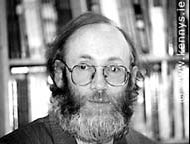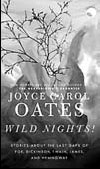Reviews
Books
I Lost My Love In Baghdad: A Modern War Story
By Michael Hastings (Scribner)
This first book by a Newsweek correspondent in Baghdad is really two books. One is a young war reporter's memoir of the most horrific period of violence in Iraq, from 2005 to 2007, and of his discovery that he could live up to the extreme demands of his chosen profession. The other is an account of his up-and-down relationship with a lovely and idealistic young woman who followed him to Baghdad and whose life, along with the lives of three bodyguards, ended in a fusillade of bullets and grenades when her convoy was ambushed by Sunni extremists on Jan. 17, 2007. But Hastings didn't take the time to struggle with the issues that writing this book should have forced him to face: the nature of Andi's motives and his own, the conflict between work and love, between ambition and a normal life, and his sense of the degree, however small, of his own responsibility. That effort would have made a better - though more painful - whole of the book's two halves.
The Journey Home

By Dermot Bolger (pictured) (University of Texas Press)
"We came from nowhere and found we belonged nowhere else," says Francis Hanrahan, the troubled young hero of Dermot Bolger's fiercely beautiful novel The Journey Home. The nowhere he's referring to is the Dublin suburb he reluctantly, often bitterly, calls home. The idea of home becomes a kind of obsession for all the young characters in the novel, which honors their baffled, sheepish restlessness by sharing it fully and by turning it into a vision that, in the end, transcends simple anomie. The Journey Home seems, at times, like an Irish Rebel Without a Cause: It is, like that 1955 James Dean film, the coming-of-age story of young people who seem to veer helplessly between wanting everything to change - now - and wanting everything to stay the same forever. Bolger conveys that painful ambivalence vividly, with his urgent prose and his obsessive, endlessly circling narrative structure and his persistent, dronelike repetition of that single tantalizing word "home."
Wild Nights

By Joyce Carol Oates (Ecco/HarperCollins Publishers).
Judged by the popular stereotype of writers - bitter, blocked, alcoholic and angry - Joyce Carol Oates does not measure up. The author of more than 50 works of fiction, an indefatigable reviewer, a creator of essays, plays, diaries and, under two pseudonyms, psychological thrillers, Oates not only defies such stereotypes, she disdains them, as she tacitly acknowledged when she hurled Freud's ironic term of praise, "pathography," against biographies of writers that revel in dysfunction. But dysfunction is the subject of her hilarious and harrowing new collection, Wild Nights! With a title borrowed from Emily Dickinson's fiery poem of longing, these stories ingeniously imagine the last documented days (or nights) of Dickinson and four other writers: Edgar Allan Poe, Mark Twain, Henry James and Ernest Hemingway. It's a gem of a book - a pathography, in fact - about creativity and age and the complicated, anxiety-ridden relationship between the two.
Dictation: A Quartet
By Cynthia Ozick (Houghton Mifflin Company)
In an early essay called The Lesson of the Master, Cynthia Ozick described her own coming-of-age as a writer as a tale of conformity and escape, or, to borrow the title of her first book of essays, "art and ardor." Besotted in her youth with the elegant renunciations of Henry James (on whom she wrote a master's thesis), she managed to learn, as she tells it, the wrong "lesson," choosing the marble perfections of Art over the messy entanglements of Life. "All of us will lose our youth," she observed ruefully, "but not all of us will pin the loss on Henry James." The four expertly turned stories in Dictation: A Quartet extend her revenge, using art to celebrate the arduous ardor of life.
The New York Times Syndicate
(China Daily 04/23/2008 page20)














